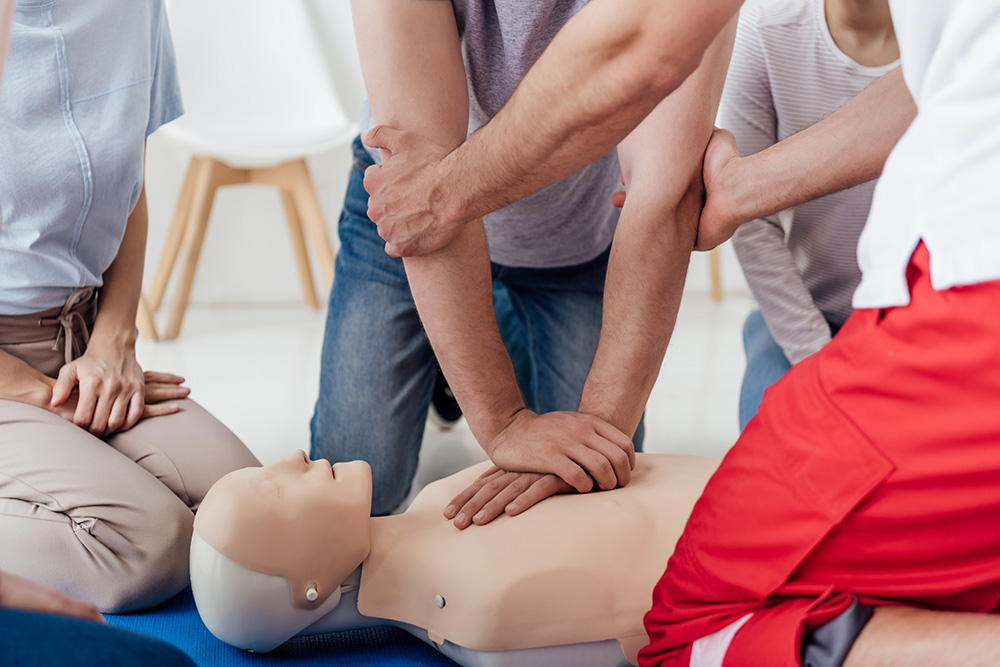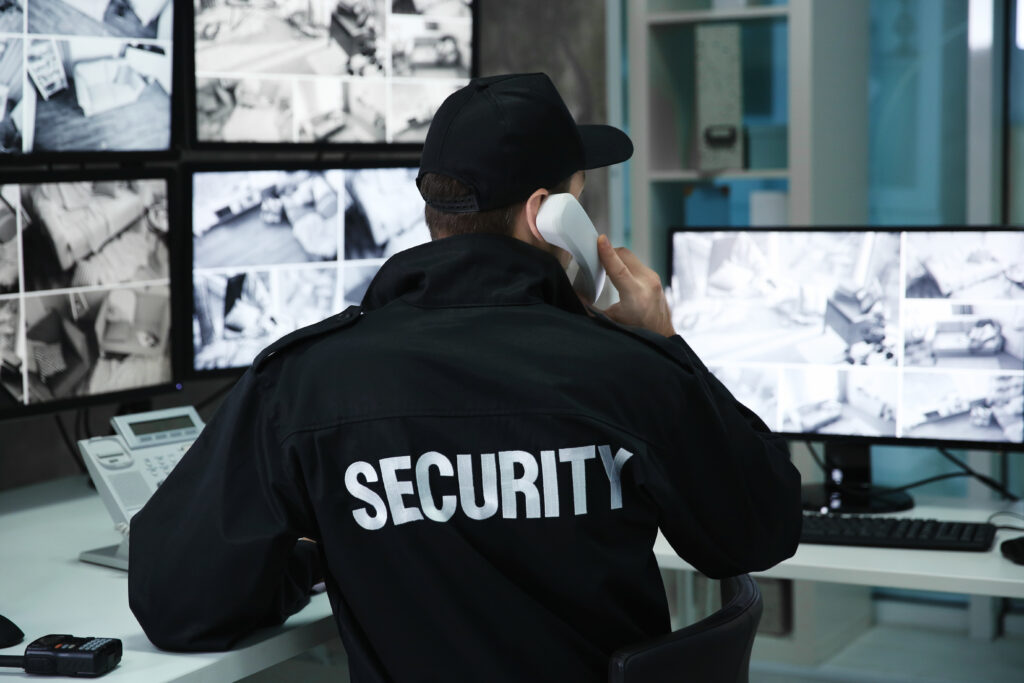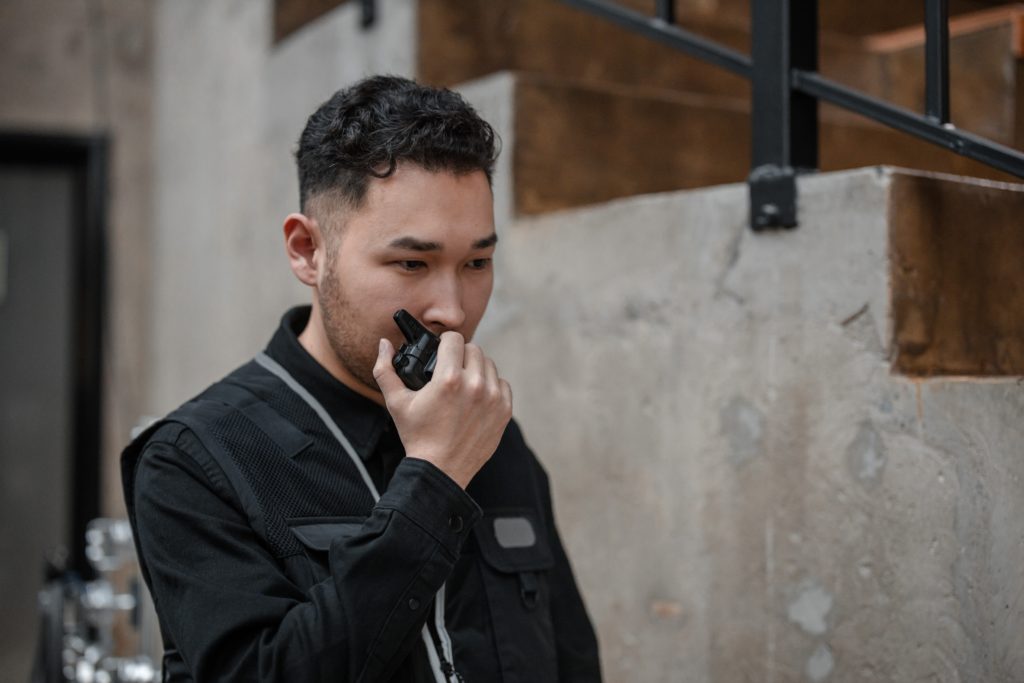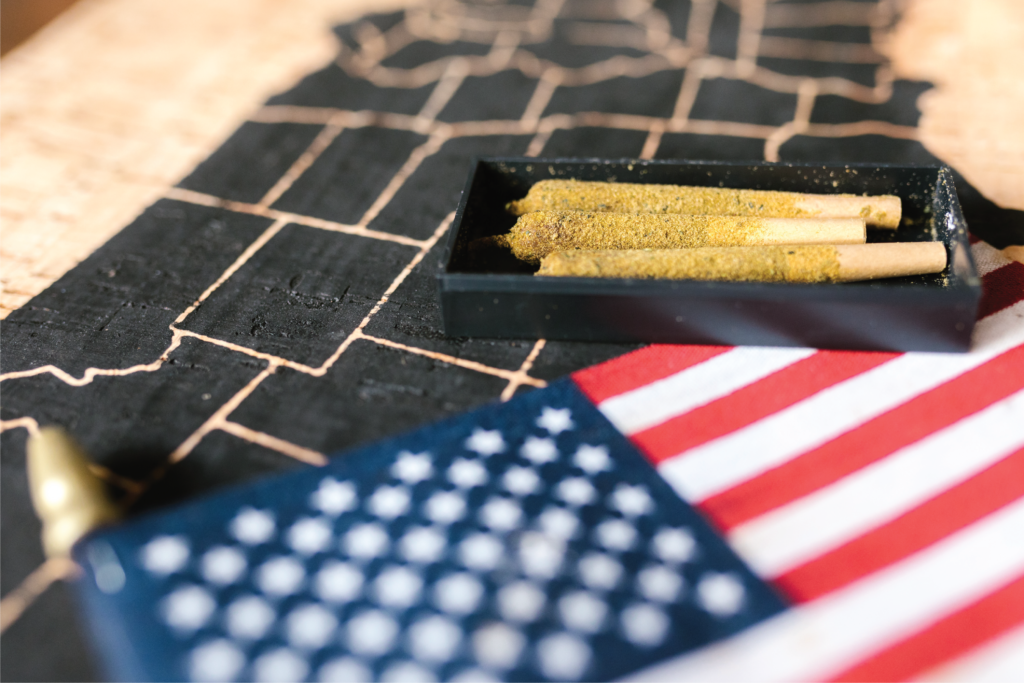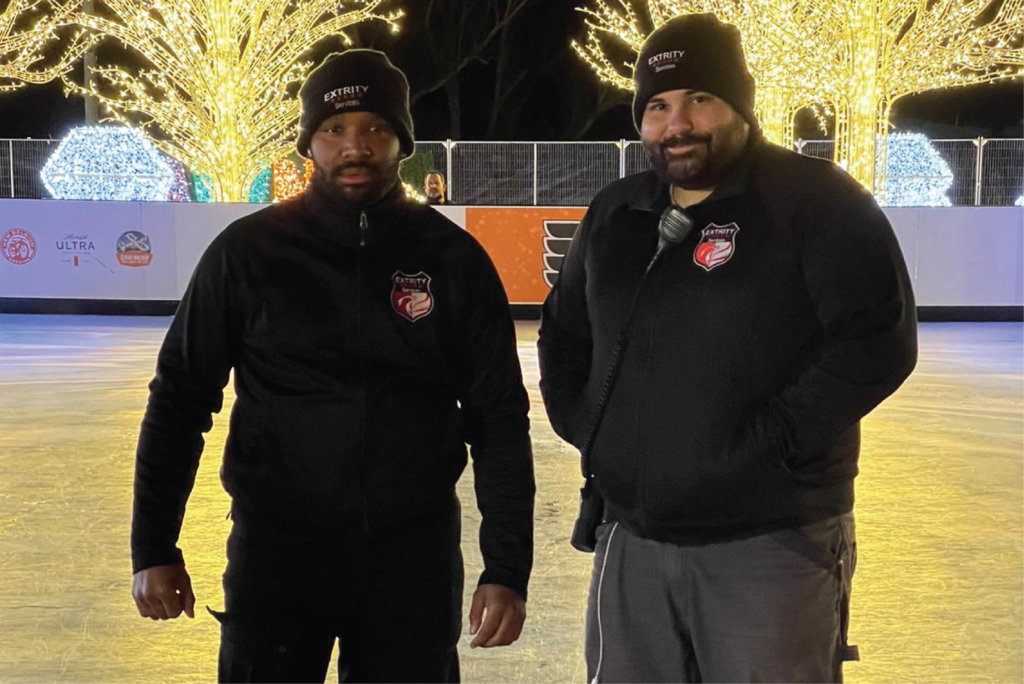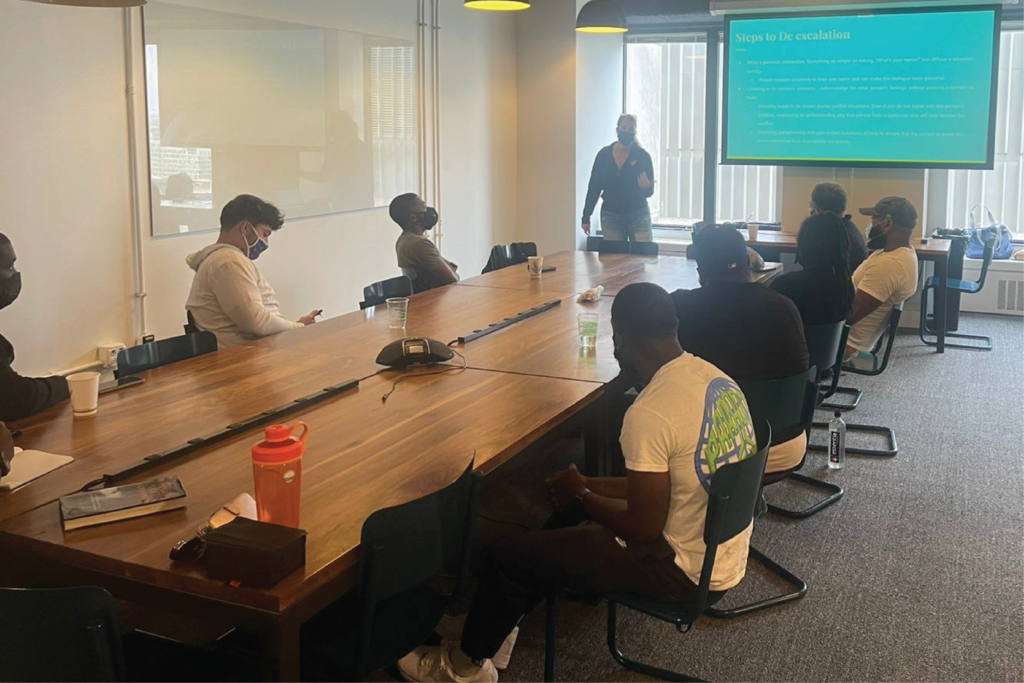You’re at a concert…standing in line at the bank…working at a local school…attending a conference…or simply sitting at your desk. Out of nowhere, someone – or heaven forbid, even you – drops to the floor with a medical emergency. Panic ensues around the obvious distress. All of these scenario examples have one thing in common – they required a security professional with CPR training to assist with a medical emergency.
In seconds, a joyous event or normal day-to-day activity can suddenly turn into a crisis. When everyone around you is panicking and creating chaos, you need someone who can assess the situation and jump into action. In those critical moments when every second matters, having the right person nearby to help can mean the difference between saving a life or a disaster. If it’s a public setting, in most cases that person who will jump into action is a security professional.
A trained security professional is prepared for anything. They are ready for unexpected emergencies. And one of their valuable tools is CPR Training.
What is CPR?
CPR stands for Cardiopulmonary Resuscitation. This emergency lifesaving procedure is performed on an individual when their heart stops beating.
Should Security Professionals Have CPR Training?
A security team isn’t there to simply be proactive with only keeping the peace. A well-prepared security professional will be able to be reactive to unplanned situations. As stated above, if one of these medical emergencies happens in a public setting, a security team would be able to step in and navigate the medical emergency. There are many reasons why these individuals should be the ones to assess the circumstance and respond accordingly.
Security Professionals Are In Charge:
A properly trained security professional is going to be the voice that cuts through the chaos. They are the ones that people will look to for help in guiding them through whatever is happening. They are the leaders who will take control in any situation. It is a natural extension for the person assessing the situation to be able to be reactive if the situation calls for it.
They Are Usually At Ground Zero:
A well-trained security professional will be at the heart of the action. They tend to be amongst the crowds, amid the people, or strategically placed with big-picture vantage points. By nature of their responsibilities, they are the first on the scene if an emergency situation goes down.
In addition, a security professional with CPR and first-aid training is also great at surveying the scene. They identify possible dangers and hazards to others nearby. Their role is to act as surveyors to the scene.
Security Guards Are Trained In Emergency Lifesaving Medical Skills:
A security professional with CPR training can also assess an individual and determine what other medical help they need. Different medical emergencies call for different responses. In these crucial moments, knowing what is wrong is as important as knowing what to do.
Security professionals that have CPR training are also trained in universal safety precautions. Not only can they implement CPR, but they also know the risks associated with tending to specific emergencies. They are trained to protect themselves and the victim from further injury. And they can assess unresponsive individuals, as well as know-how to identify life-threatening emergencies.
Their Training Helps Support Medical Professionals:
No one expects a team of security professionals to be the stand-ins for actual medical professionals. But depending on what is happening during the incident (and/or if there is more than one casualty), your CPR-trained security team may be the only individuals available. You need a qualified team that can help be the bridge between immediate response and the medical support needed.
CPR Emergencies Could Happen At Any Time:
According to the Sudden Cardiac Arrest Foundation, there are more than 1,000 out-of-hospital cardiac arrests PER DAY. That’s over 365,000 incidents per year. The numbers are stacked against us. The likelihood of an individual having a medical emergency in one of the above situations is strong. It is better to be proactive and prepared.
CPR Can Help In A ‘life Or Death’ Moment:
When there is a medical emergency (especially cardiac arrest), the minutes between occurrence and response will be the difference between life and death. The American Heart Association states that the survival rate of a person who receives CPR quickly while in cardiac distress is two to three times more likely to survive vs someone who does not. 90% of people who go into cardiac arrest will die if they do not receive immediate attention.
A well-trained security professional is an asset to the public’s health and safety. Not having one on hand is a liability and can be disastrous. To hear more about how we proactively prepare your sites for anything that can happen, contact us to learn more.

